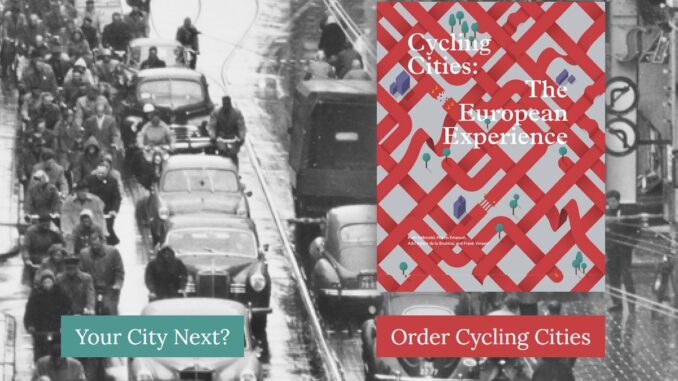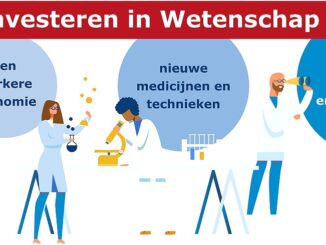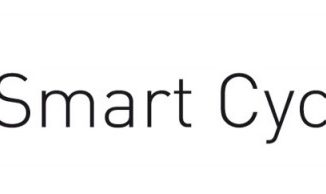
Eindhoven University of Technology – Bicycle Challenges
The research program Bicycle Challenges: Past, Present, and Future of Sustainable Urban Mobility (SUM) investigates the governance of cycling as part of sustainable urban mobility from a long-term perspective and the emergence of new mobility concepts. It challenges the focus on urban mobility by looking at the socio-technical challenges of past and current innovations. It engages with historical and sociological research methods.
Past
PhD projects focusing on the multi-level Governance in Historical Perspective. The research analyzes Dutch cycling since the 1920s in an international context. Historically, urban public transit and automobility have had their institutional supporters. Public transit advocates in cities often maintain strong local ties; car advocates are allied to suburban and national constituencies. Politically, cyclists and pedestrians fall between the cracks. Henk-Jan Dekker examines how Dutch cycling policy & practice have developed institutionally and politically on the urban, provincial, and national levels since the 1920s. Patrick Bek looks at bicycle governance since the Second World War in a global context. Jan Ploeger focuses on bicycles in the chain mobility, in particular the bike-train connections, over the past hundred years. All PhD projects examine how Dutch cycling expertise has circulated globally. Sue-Yen Tjong Tjin Tai joins the group as a postdoc to develop cycling’s global dimension by examining how bicycle innovation knowledge has circulated between European producers and local partners in China, Africa, and South America, between 1890 and 1970.
Present
PhD projects focusing on Mobility Concepts. Three bicycle systems (Traditional, E-bikes, Pedelecs) potentially extend the traditional action radius of cycling both as a mono- and as a multi-modal functionality in the mobility chain. Each bicycle system has different implementation and up-scaling trajectories linked to ICT possibilities with perspective on connected bikes. Qi Sun and Brett Petzer will look at implementation strategies, social costs-benefits, and (non) ex-changeability of the three systems in a comparative fashion.
Future
PhD projects focusing on Future Cycling Innovations. Over the last few years, many startups offer cycling innovations to encourage cycling. Using transition studies scholarship, Matthew Bruno and George Liu examine both the governance and the urban form needed for a successful transition into future innovations. The PhD’s participate in the NWO national research program Smart Cycling Futures in collaboration with Utrecht University, University of Amsterdam, and Windesheim.
Ruth Oldenziel, Frank Schipper, Frank Veraart, Karena Kalmbach, Henk-Jan Dekker, Patrick Bek, Jan Ploeger, Matthew Bruno (TIS History Division); Hans Jeekel, Anna Wieczorek, Geert Verbong, Brett Petzer, and Qi Sun (TIS Transitions & Sustainability Division); Andreas Spahn (Philosophy and Ethics Group); Pieter van Wesemael, Sukanya Krishnamurthy, and George Liu (Urbanism, Built Environment Group).
Consortium
NWO, Pon Holding, Rijkswaterstaat, Dutch Ministry of Infrastructure & the Environment; Eindhoven University of Technology (University Board; Technology, Innovation, and Society Group; Philosophy Group; Urbanism Built Environment Group).
Contactgegevens Fietscommunity:
Rob van der Bijl
robvanderbijl@favas.net
De tekst in deze bijdrage is overgenomen van:
www.cyclingcities.info/research/phd-program-tue/
Foto bij deze bijdrage:
Boekomslag www.cyclingcities.info/



